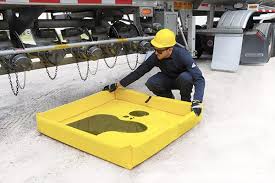Becoming a home inspector in Texas is a rewarding career path for those interested in real estate, construction, and property evaluation. Home inspectors examine the condition of residential properties, checking for issues like water damage, faulty electrical systems, and plumbing problems. These inspections help buyers make informed decisions and ensure the property meets safety standards.
If you’re aiming to become a licensed home inspector in Texas, there are several steps to prepare, qualify, and successfully obtain your license.
Quick Access
- Preparation
- How to Get the License
- Qualifying Education Classes Requirements
- Fingerprints and Background Check
- Pass the Exam Within One Year
- Renew Your License
- Home Inspection Costs
1. Preparation
To become a home inspector in Texas, the first step is to prepare for the qualification exam. You’ll need to complete 194 hours of approved classroom education. A bachelor’s degree is not required; completing a certificate course is sufficient.
Preparation increases your chances of passing the exam and moving to the licensing stage. Many private institutions offer training courses designed to help new candidates or those without prior experience succeed.
2. How to Get the License
Obtaining a license is essential to legally operate as a home inspector in Texas. There are six key steps in the licensing process:
- Complete educational requirements
- Submit an online application to TREC (Texas Real Estate Commission)
- Attend exam prep classes and practice exams
- Get fingerprints taken and pass a background check
- Pass the state and national exams within one year
- Complete annual continuing education
Following these steps carefully ensures your eligibility to work professionally as a home inspector.
3. Qualifying Education Classes Requirements
The required 194 hours of education include both national and Texas-specific courses:
National Education (110 hours):
- 40 hours: Property and Building Inspection Module I
- 40 hours: Property and Building Inspection Module II
- 40 hours: Analysis of Findings and Reporting
- 10 hours: Business Operations and Professional Responsibilities
Texas Education (84 hours):
- 40 hours: Texas Practicum (ride-along)
- 24 hours: Texas Standards of Practice Module
- 20 hours: Texas Law Module
Completing both portions typically takes 3–6 months and costs around $2,699. Once done, you can submit your application and educational documents to TREC.
4. Fingerprints and Background Check

After submitting your application, fingerprints and a background check are required. This step is mandatory under Texas law to verify your identity and ensure safety compliance. The fingerprinting fee is about $38.25, and processing usually takes 7–10 business days.
5. Pass the Exam Within One Year
Candidates must pass both the national and Texas state exams within one year of application. Exam details:
- Duration: 4.75 hours
- Questions: 200 national + 30 state multiple-choice questions
- Passing Score: National 63%, State 75%
- Exam Fee: $199
- Attempts: 3 within one year, no waiting period between attempts
Passing the exams confirms your eligibility to receive a home inspector license in Texas.
6. Renew Your License
After receiving your license, it must be renewed every two years. Continuing education is required (32 hours), and renewal fees vary by license type:
- Apprentice Inspector: $32
- Real Estate Inspector: $53
- Professional Inspector: $63
7. Home Inspection Costs
A licensed home inspector in Texas typically charges $300–$500 per inspection. The inspection covers:
- Electrical systems
- Plumbing and water connections
- Mold and moisture checks
- Overall structural safety and quality
After the inspection, the inspector provides a detailed report or certificate documenting the home’s condition.
Conclusion
Becoming a home inspector in Texas is a structured but rewarding process. By completing your education, passing the required exams, and following TREC regulations, you can start a career in a field that helps homeowners make informed property decisions and ensures safety and compliance.





